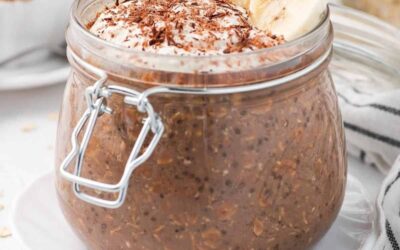Understanding Constipation in Parkinson’s Disease
Constipation is one of the most common non-motor symptoms in Parkinson’s Disease, gut–brain axis, and nutrition research, often appearing years before diagnosis. It significantly affects quality of life and can also influence the effectiveness of medication absorption.
There are two main types of constipation seen in Parkinson’s Disease:
- Slow-transit constipation – where stool moves too slowly through the colon.
- Defecatory dysfunction – where stool consistency may be normal, but coordination of the pelvic floor muscles prevents proper elimination.
Managing Slow-Transit Constipation
The foundation of management includes:
- Hydration – drinking sufficient water supports bowel function.
- Dietary fibre – from whole grains, legumes, fruits, and vegetables. Fibre supplements can also help when intake is low, but should be matched with hydration.
- Physical activity – movement encourages gut motility.
When lifestyle measures are not enough, medications may be used. One of the most effective is macrogol (polyethylene glycol), which binds water in the stool, making it softer and easier to pass. However, a practical warning is that occasional watery diarrhoea can sometimes signal severe constipation, known as overflow diarrhoea, where liquid bypasses hard stool.
👉 Always discuss medication options with your healthcare provider before starting over-the-counter products.
Managing Defecatory Dysfunction
This form of constipation requires a different approach. Suppositories or enemas may be used, and physical positioning during bowel movements can make a notable difference. A simple, practical tip is to elevate the legs into a crouching position, which straightens the rectum and eases stool passage.
The Mediterranean Diet and Parkinson’s Disease
Nutrition is central to the gut–brain axis in Parkinson’s Disease. Diet not only influences constipation but may also affect the broader progression of the condition. The Mediterranean diet is particularly valuable. This dietary pattern is:
- High in fibre-rich foods such as legumes, fruits, vegetables, and whole grains.
- Rich in fish, olive oil, nuts, and seeds, providing healthy fats and antioxidants.
- Low in red and processed meats, with moderate intake of poultry and dairy.
Benefits of the Mediterranean Diet in Parkinson’s Disease
Evidence suggests that the Mediterranean diet has several benefits for people with Parkinson’s Disease:
- Improved constipation through fibre fermentation into short-chain fatty acids, which have anti-inflammatory properties.
- Reduced risk of Parkinson’s Disease in those who adopt the diet, particularly from age 65 onwards.
- Potential delay in progression, with both the Mediterranean and MIND (Mediterranean–DASH Intervention for Neurodegenerative Delay) diets linked to later onset and slower advancement of Parkinson’s Disease.
Unlike restrictive dietary regimes such as gluten-free or ketogenic diets, which currently lack strong evidence in Parkinson’s unless clinically indicated, the Mediterranean and MIND diets are considered safe, diverse, and sustainable long-term.
The Gut Microbiome and Parkinson’s
The gut–brain axis in Parkinson’s Disease is central to current research. The microbiome can influence not only gastrointestinal symptoms but also disease progression and medication response.
What We Know So Far:
- Gut bacteria are altered in Parkinson’s Disease, but findings vary depending on genetics, geography, and ethnicity.
- Probiotics may provide some benefit for constipation, but there is no strong evidence that they alter Parkinson’s progression or motor symptoms.
- A healthy, diverse diet remains more effective for microbiome health than probiotics alone.
Probiotic products may help, but they should complement, not replace, nutritional and lifestyle strategies.
Other Dietary and Lifestyle Considerations
- Fasting and stress: Intermittent fasting is under investigation, but more evidence is needed. Chronic stress, however, is known to reduce microbiome diversity and increase inflammation. Stress management strategies such as meditation or relaxation techniques may therefore be beneficial.
- Sugar intake: A diet high in refined sugar and low in fibre harms microbiome diversity and promotes inflammation. Reducing processed foods and added sugars supports the gut–brain axis.
- Antibiotics and microbiome health: While antibiotics may temporarily disrupt gut bacteria, they are sometimes necessary for conditions such as Helicobacter pylori infection. In these cases, the benefits outweigh the risks. Certain probiotics may be taken alongside antibiotics to reduce side effects.
Gut–Brain Axis: Body-First or Brain-First?
There is growing discussion around whether Parkinson’s begins in the gut (body-first) or the brain (brain-first). Some genetic mutations, such as GBA, appear more associated with gut-first pathways, while others, like LRRK2, seem brain-first. Symptoms such as REM sleep behaviour disorder (acting out dreams) or loss of smell may signal a body-first origin.
Regardless of the pathway, gastrointestinal changes often appear early, underscoring the importance of digestive health in Parkinson’s Disease management.
Summary
Constipation and gut dysfunction are significant challenges in Parkinson’s Disease, requiring tailored approaches depending on whether the issue is slow transit or defecatory dysfunction. Lifestyle measures such as hydration, fibre, and physical activity remain the foundation of management, with medications providing additional support, if indicated.
The Mediterranean and MIND diets stand out as beneficial dietary patterns, not only supporting bowel function but also potentially delaying the onset and progression of Parkinson’s Disease.
The gut–brain axis, Parkinson’s Disease, and nutrition remain central to ongoing research. While probiotics show mixed results, a diverse, fibre-rich diet, reduced sugars, and stress management continue to provide consistent benefits.




